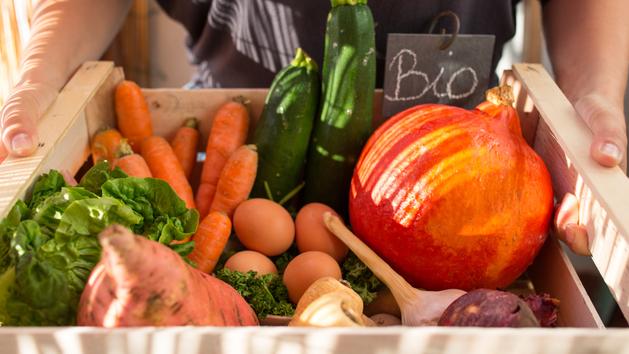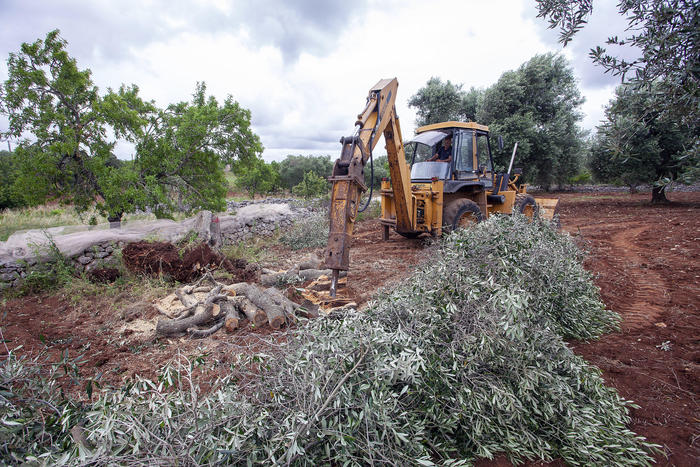This is one of the few positive effects of containment.
During this period, last spring, the French accelerated their transition to a so-called responsible diet.
This is what emerges from the first study published on Tuesday by the new Observatory "Food and Families" of the Nestlé Foundation, with Ipsos.
“
During the confinement, there really was an acceleration in the desire to consume responsibly.
The Covid crisis has underlined the desire to cook, to share a healthier meal which results in eating more varied and sustainable
”, summarizes Pierre-Alexandre Teulié, Secretary General of the Nestlé Foundation.
Read also: From the farm to the shelves, the blockchain ensures the traceability of food
Thus, 51% of French people say more often or recently to favor local foods or foods produced in France.
Attention is also increasingly focused on organic, favored by 45% of respondents.
This responsible consumption, already driven by the various food scandals in recent years, also involves a more pronounced rejection of processed foods.
Proof of this trend: 47% of French people say they read labels more often and more than half of those questioned (54%) say they use a nutritional information application such as Yuka.
“
In their ways of cooking, the French confirmed during confinement practices on which they had already emphasized before the crisis.
For the future, they would first like to favor a more local and raw food
”, underlines the study.
Read also: Responsible consumption: the good niches of ecology on a daily basis
The fight against waste is also becoming a priority: 48% say more often or recently that they pay more attention to this aspect.
Cooking leftovers is seen as a way to act on its own scale for the environment, but it is also a solution to save time or money.
Similarly, 41% more often say they are reducing their purchases of products wrapped in plastic or with over-packaging.
"
When we start to take care of the packaging, that we pay attention to the use-by dates, that we start to cook leftovers, it shows us that anti-waste is making a strong entry into the consciousness of the French
" , notes Pierre-Alexandre Teulié.
The race for promotions
There remain two major constraints, exacerbated by the Covid crisis.
First of all the price.
Nearly one in two French people consider that eating a balanced diet is still too expensive (47%).
“
The price is a major concern amplified by the health crisis: 45% of French people say they are worried about the financial situation of the home since the start of the crisis,
” notes the study.
“
The economic situation of families has become complicated.
However, it is not on food that the French are making downward decisions.
They are heading for promotions, for the cheapest brands.
They rationalize their choice to continue to eat well.
They do not make sacrifices on food,
”notes the representative of the Nestlé Foundation.
Read also: Joining forces to buy organic products at cost price
The second main constraint is that of time.
During confinement, the French had more time to prepare and eat more balanced.
But the return to a slightly more classic rhythm of life, during deconfinement, has changed the situation.
"
38% consider that the lack of available time is a brake on eating balanced
", especially during the week, underlines the study.
To get around this problem, some are betting on “batch cooking”.
This practice, which consists of preparing dishes for the week on weekends, is gaining ground in households.
"
It is a phenomenon which seems to be sustainable
", observes the observatory.
Technology is also seen as a powerful ally.
Hence the craze for culinary applications or even robots, Cookeo and other Monsieur Cuisine Connect.
“
The technology provides support to the French to save time.
This allows them to find preparations quickly or prepare meals faster with the robots and their recipe app.
This service dimension to help people cook is important,
”notes Pierre-Alexandre Teulié.
Read also: With the reconfinement, the French rush to the raclette machines
According to the latter, these conclusions should encourage all actors in the agri-food chain, from producer to distributor, to support these developments.
“
There is a real collective message that must be adopted: it is the fight against the food divide.
For the first time, it is clear that the French no longer want to cut corners in their food expenses.
The consumer arises as a solution,
”he concludes.
Read also: Discover the actors and initiatives of change on Figaro Demain








